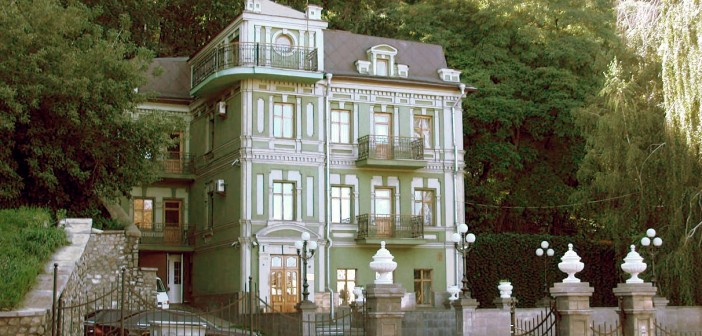
Ukraine has 130,000 monuments of cultural heritage. With proper preservation and effective development of the surrounding infrastructure, the country can significantly increase its cultural and tourist potential. However, current regulation does not provide protection for cultural heritage and provokes numerous corruption abuses, an audience heard at a round table organised by the Better Regulation Delivery Office (BRDO) with the support of EU4Business and the FORBIZ project in the framework of the Public Dialogue #PRODialog.
As of October 1, 2017, in the State Register of Immovable Monuments of Ukraine lists 906 heritage sites of national importance, and 8,065 of local importance. In order to protect them, they are included in the List of Historical Areas, which today identifies 401 settlements in Ukraine. According to the ‘Regulation of Urban Development’ historic sites should be governed by defined regimes of regulation of development and developed historical and architectural support plans. However, as of September 2017, such plans are approved in only 86 settlements, that is, 20% of the historical sites in Ukraine. Thus, in 80% of settlements, the rules of development are not actually regulated. Moreover, support plans are absent in 50% of regional centres, in particular, Kyiv and Lviv, where UNESCO World Heritage sites are located.
Ways of solving the problems of market regulation were sought by representatives of the authorities, business and the public at the BRDO round table on ‘New construction on the territories of the cultural heritage sites’ on 20 November.
Burden for business
When regulating new construction on the territories of cultural heritage sites, the state applies eight different instruments. An expert analysis of these tools and related procedures has revealed that the current regulatory framework does not provide adequate protection for cultural heritage and creates a significant burden on business. According to a study by the BRDO study, out of 18 acts regulating the market, 10 need updating. The authority of the cultural heritage protection bodies of different levels is duplicated, there is no open information on the boundaries of monuments, there is a legislative conflict about the necessity of using the instruments and the uncertainty of the procedures.
"The commissioner of any construction on the territory of the placement of cultural monuments has to appeal from 4 to 10 times to the same bodies of protection of cultural heritage, which does not guarantee their preservation. Separate instruments create artificial barriers for the use of territories, and such as the approval of historical and town-planning justification is not provided at all on the level of law. Its development is established only by the methodical recommendations of the Ministry of Culture, but the use of this tool now allows us to circumvent the rules of master plans and bear significant risks for the preservation of cultural heritage," said the Head of the BRDO, Construction sector, Elena Shuliak.
Government support
Deputy Minister of Culture of Ukraine Tamara Mazur agreed: "We support the abolition of the historical and town-planning substantiation, the relevant resolution is now being approved by the Cabinet of Ministers. From 1 January, it should be abolished in those settlements, which already have support plans, in the rest - for a year. We share the vision of BRDO and hope that we can implement the measures described in the study for the transparent operation of the system and the preservation of cultural heritage," she noted.
According to the BRDO, urgent measures are needed, in particular:
- To accelerate the preparation and adoption of amendments to the law ‘On the Protection of the Cultural Heritage’ to eliminate contradictions between the norms of the laws on cultural heritage and urban development activities.
- To publish a complete database of immovable objects of cultural heritage.
- To accelerate the development of master plans for all settlements in the country, in particular, Kyiv.
- To harmonise national legislation in accordance with international law in the field of cultural heritage protection, in particular the Convention on the Protection of the World Cultural and Natural Heritage.
Funded by the European Union under the EU4Business initiative, the FORBIZ project supports Ukraine’s reform agenda and its economic recovery by proposing a systemic, smart change to a more business-friendly environment with a particular focus on SMEs. The project seeks to steer a shift in policy towards greater recognition of SMEs and the vital role they play in economic recovery, while addressing the challenge of reducing regulatory burden and lessening risk for businesses.
